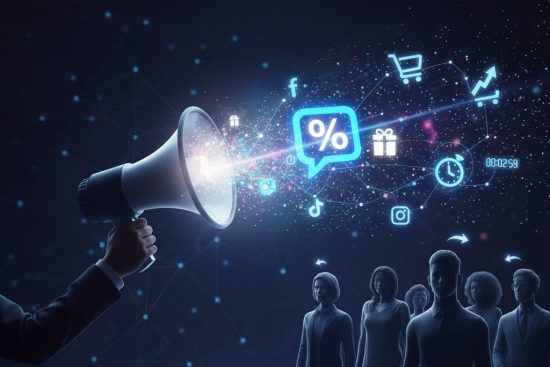
Introduction
In the world of digital marketing, one of the most critical factors for the success of your website is the loading speed. Not only does it affect the user experience, but it also plays an important role in your SEO rankings. Google and other search engines prioritize websites that load quickly, which can have a direct impact on your ranking in search results.
Did you know that a website that takes more than 3 seconds to load can lose up to 50% of its visitors? In this article, we will explore how the loading time of your website influences your SEO and give you practical strategies to improve your site's loading speed with ClickPanda's tools.
Table of Contents
Why is loading speed important for SEO?
-
Bounce rateSlow websites have a higher bounce rate, which means that visitors leave the site before interacting. This negatively affects the user experience and the interaction metrics that Google takes into account for ranking.
-
User Experience (UX)A website that loads quickly offers a much better user experience, which increases the likelihood that users will stay longer and perform valuable actions (such as purchases or registrations).
-
Google ranking factorsGoogle has confirmed that loading speed is a ranking factor in its algorithm. If your site is slow, it will probably not rank well, even if you have excellent content.
The impact of load time on SEO:
-
Technical SEOGoogle values well-optimized websites from a technical point of view. A site that takes longer to load may be considered as "less efficient", which could affect your on-page SEO.
-
Core Web VitalsCore Web Vitals: In 2021, Google introduced Core Web Vitals as metrics to evaluate user experience. These metrics include Largest Contentful Paint (LCP), First Input Delay (FID) and Cumulative Layout Shift (CLS). These factors are directly related to the loading speed of your site and how users interact with it.
How loading speed affects user behavior
-
Reduction of conversionsIf your site is slow, users get frustrated and abandon before completing a purchase or filling out a form. A fast site can significantly improve conversion rates.
-
Increased probability of sharingUsers are more likely to share and recommend a site that offers a fast and seamless experience, which can also positively impact your SEO through social signals.
Strategies to improve your website load time with ClickPanda:
-
Image optimizationLarge, unoptimized images can slow down your website. ClickPanda helps you automatically optimize images so that they maintain their quality while reducing their size, improving loading speed.
-
Use of a CDN (Content Delivery Network)Implementing a CDN distributes your site's content across servers located in different parts of the world, which speeds up loading time for users in different locations.
-
File compressionJavaScript and CSS file compression reduces file size, which improves loading time. ClickPanda provides tools that facilitate the compression of these files without affecting performance.
-
CachingCaching allows your website elements to load faster by not having to load from scratch each time a user visits the site. ClickPanda offers options to configure caching efficiently.
-
Improve server performanceServer performance also affects the loading speed. ClickPanda offers optimized hosting services that improve the overall performance of your site.
Test tools to measure loading speed:
-
Google PageSpeed InsightsThis tool provides you with a complete evaluation of your website speed and suggests areas for improvement.
-
GTMetrixProvides detailed analysis of your site's performance, indicating which resources are slowing down page loading.
-
PingdomAnother useful tool to measure the loading time of your website and the reliability of the servers.
Tips to improve SEO in different CM
Each CMS has its own characteristics, but there are general practices that can be applied to improve the SEO of your website on any platform. Here are some practical tips depending on the CMS you use:
SEO in WordPress:
WordPress is one of the most popular CMS, and thanks to its flexibility and plugins, improving SEO is relatively simple. Here are some tips:
-
Use an SEO pluginInstall plugins such as Yoast SEO o Rank Math to manage the technical aspects of SEO, such as meta descriptions, titles, and keywords.
-
Optimize your images: Use image compression tools or plugins like Smush to reduce the size of the images without losing quality, improving the loading speed.
-
Create optimized contentUse descriptive titles and alt tags for images. Also, make sure the content is well structured using H1, H2 and H3 headings in a hierarchical manner.
-
Take advantage of internal linksAdd relevant internal links in your content to improve navigation and indexing of your site by Google.
-
Optimizes loading speedInstall a cache plugin such as W3 Total Cache o WP Super Cache and set up a CDN to improve performance.
SEO in Joomla:
Joomla is another widely used CMS, and although it doesn't have as many plugins as WordPress, you can still optimize your site for SEO with these tips:
-
Enable friendly URL: Go to the SEO settings in Joomla and activate the friendly URLs option to make your links more readable and easy to index.
-
Use SEO extensionsThere are several extensions available in Joomla that improve SEO, such as sh404SEF o Joomla SEO. These extensions help manage meta descriptions, titles and friendly URLs.
-
Optimize images and multimedia content: Use tools such as ImageMagick to automatically compress images and make sure they don't slow down your site.
-
Take advantage of SEO modulesJoomla offers modules that allow you to create automatic sitemaps and manage metadata tags without complications.
Drupal SEO:
Drupal is known for its flexibility and ability to manage complex websites. Here are some tips to improve SEO:
-
Use SEO modulesDrupal has modules such as Pathauto (for friendly URLs), MetaTag (to easily add metadata) and XML Sitemap (to create a site map).
-
Optimizes speedAs with other CMSs, it is important to configure caching and use a CDN to improve loading speed. Drupal has built-in options to enable page and block caching.
-
Take advantage of TaxonomiesContent organization and categorization is essential for SEO in Drupal. Use taxonomies to structure your content logically and facilitate navigation.
-
Enhanced multimedia content: Make sure that all images have descriptive alt text, and use the module Image Optimize for image compression and enhancement.
Tips for improving SEO on website building platforms (SiteJet, Shopify, etc.)
If you are using platforms such as SiteJet, Shopify or similar tools to create your website, there are also good practices to optimize SEO and make sure your site is well positioned in search engines.
SEO in SiteJet:
SiteJet is an all-in-one website creation platform that allows you to easily design and manage your site, but you can also improve SEO with these tips:
-
Customize URLsSiteJet allows you to customize the URLs of your pages. Make sure they are friendly and descriptive, with keywords that are relevant to the content of the page.
-
Use customized meta descriptions and titlesCustomize the meta descriptions and titles of each page so that they are attractive and contain relevant keywords. This improves search engine visibility.
-
Optimize images and multimedia content: Use the image optimization tool in SiteJet to reduce the size of images without losing quality. This speeds up the loading speed, which has a positive impact on SEO.
-
Implement a site map (Sitemap): SiteJet has
options to generate a sitemap automatically. Make sure it is enabled to help Google index your site correctly.
SEO on Shopify:
Shopify is one of the most popular e-commerce platforms, and optimizing your SEO is crucial to increasing sales. Here are some tips:
-
Optimize product pagesCustomize your product titles and meta descriptions. Use unique descriptions for each product and be sure to include keywords that your customers can use to search for those products.
-
Use SEO apps for ShopifyShopify has several applications to improve SEO, such as SEO Booster y Plug in SEO. These applications facilitate the optimization of images, metadata and other aspects of SEO.
-
Loading speed: A fast online store is crucial. Use the tools offered by Shopify to reduce the size of images, compress files and take advantage of the browser cache.
-
Optimize URLsShopify allows you to customize URLs for product and collection pages. Make sure the URLs are clean, short and contain relevant keywords.
-
Create quality contentSEO: Stores that have a blog tend to have a better SEO performance. Create a blog with relevant content related to your products and use strategic keywords to attract more traffic.
SEO on Wix, Squarespace, and other website creation platforms.:
If you use other popular platforms such as Wix o SquarespaceIf you want to improve SEO, you can also improve SEO with a few simple adjustments:
-
Optimizes multimedia contentWix and Squarespace allow you to optimize images and videos to ensure fast load times. This improves both user experience and SEO.
-
Use integrated SEO toolsThese platforms often offer integrated SEO tools that facilitate metadata customization, sitemap generation and image optimization.
-
Take advantage of URL editingCustomize the URLs of your pages to make them more user-friendly and easier to index by Google.
-
Generate relevant contentAlthough platforms like Wix and Squarespace do not have the same flexibility as CMS like WordPress, it is important to create unique and valuable content that appeals to both users and search engines.
-
Don't let a slow loading time affect your SEO and user experience. ClickPanda offers you tools to improve your website's loading speed and optimize your SEO ranking.
Improve your site speed with ClickPanda
Common mistakes when optimizing loading speed and how to avoid them:
-
Ignoring mobile optimizationToday, a large part of traffic comes from mobile devices. Make sure your site is optimized for both desktop and mobile.
-
Do not check plugins: Having too many plugins or using heavy plugins can slow down your site. It is important to review and optimize the plugins you use.
-
Failure to perform regular testsLoad speed may change over time as site technologies or content are updated. Perform regular tests to make sure your site is still fast.
Conclusion
The loading time of your website has a direct impact on your SEO ranking, user experience and, ultimately, your conversions. By optimizing load speed, you will not only improve your Google rankings, but also provide a much better user experience. With ClickPanda's tools and services, you can ensure that your site loads quickly and keeps your visitors engaged.








